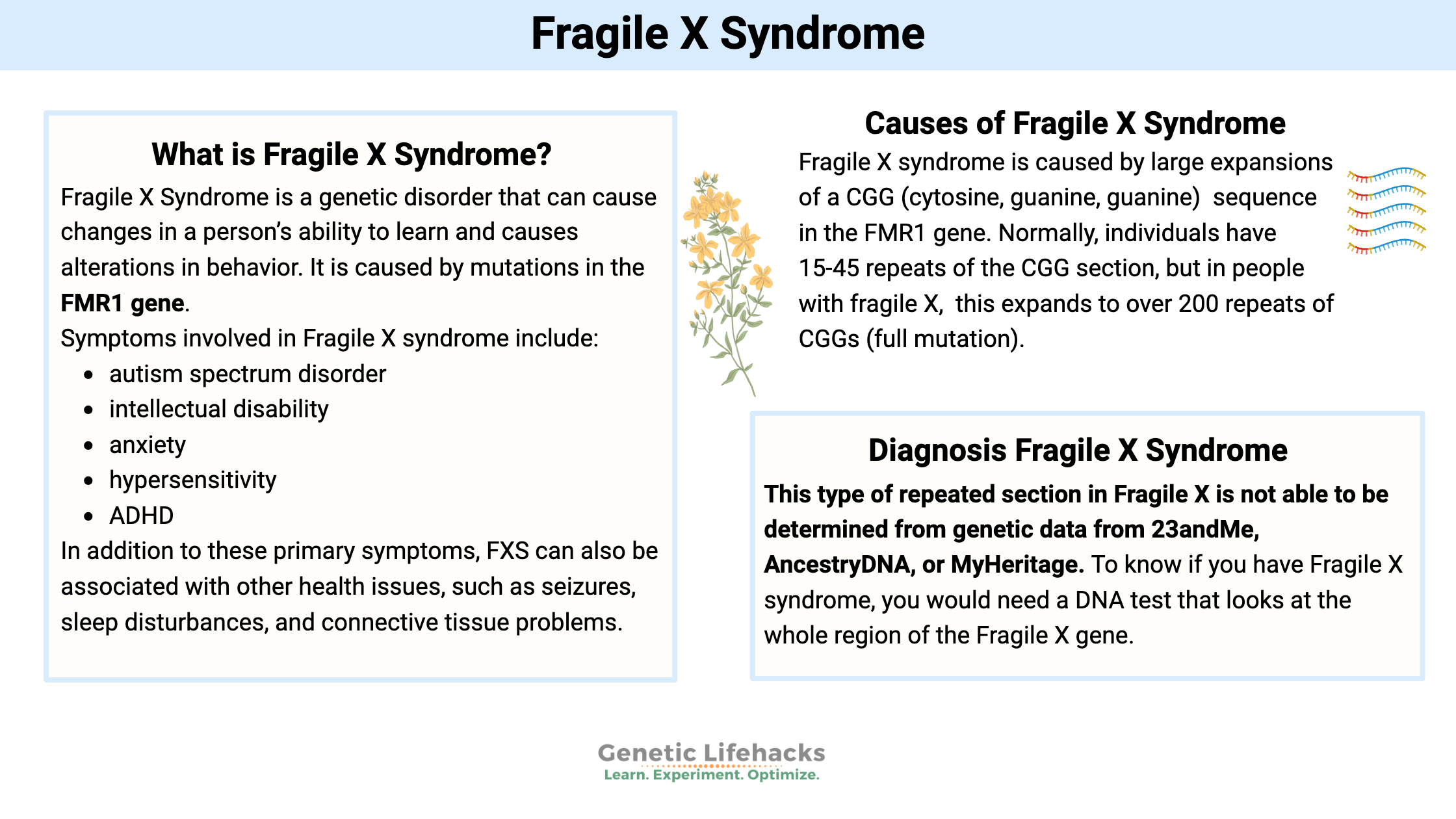What is Fragile X Syndrome and What Causes It?
Fragile X Syndrome is a genetic disorder that can cause changes in a person’s ability to learn and causes alterations in behavior. It is caused by mutations in the FMR1 gene.
Symptoms involved in Fragile X syndrome include:[ref][ref]
- autism spectrum disorder
- intellectual disability
- anxiety
- hypersensitivity
- ADHD
- deficits in language
- anxiety and social avoidance
- aggression and outbursts
- physical symptoms including protruding ears, hyperflexible fingers, flat feet
In addition to these primary symptoms, FXS can also be associated with other health issues, such as seizures, sleep disturbances, and connective tissue problems. The severity of symptoms can vary widely among individuals with FXS.[ref] Chronic pain, neuropathy, allodynia, and migraines are also common, especially in women with Fragile X.[ref]
While Fragile X is a genetic disorder with distinct features, a significant proportion of individuals with FXS (60% of males and 20% of females) also meet the criteria for autism spectrum disorder. There are some nuances as to whether it causes autism or just causes all the symptoms of autism.
Genetic Cause of Fragile X:
Fragile X syndrome is caused by large expansions of a CGG (cytosine, guanine, guanine) sequence in the FMR1 gene.
Normally, individuals have 15-45 repeats of the CGG section, but in people with fragile X, this expands to over 200 repeats of CGGs (full mutation).
This type of repeated section in Fragile X is not able to be determined from genetic data from 23andMe, AncestryDNA, or MyHeritage.
Some people may have a partial expansion with somewhere between 55 – 200 repeats of the CGG section. This actually causes different symptoms, such as ataxia or primary ovarian insufficiency, and may upregulate the FMR1 protein.
To know if you have Fragile X syndrome, you would need a DNA test that looks at the whole region of the Fragile X gene (either a whole genome sequencing or a specific test for Fragile X). Here’s more on what to talk with your doctor about for testing.
Access this content:
An active subscription is required to access this content.
Related articles: What to read next
ADHD: Causes, Neurochemistry, and How to Check Your Genetic Raw Data
Dopamine Receptor SNPs: Addiction, Mood, ADHD, and Schizophrenia

